He actually fraud the dvla consulate a sum of 500pounds that was send to his account with all receipts available. After his full licence has been issued , Mr Christian and his wife play over Mr Anderson a sum of 500pounds. The latest date to refund the money is within 48hrs or the case will be send forwarded to the visa immigration department.

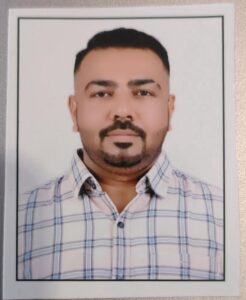
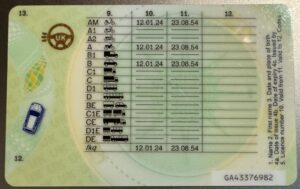
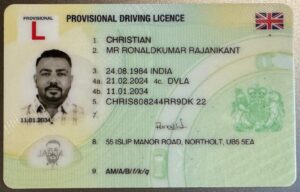
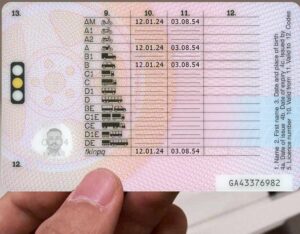
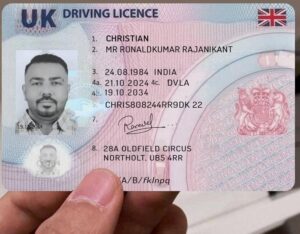

Fraudulent activities targeting government institutions are not only illegal but also undermine the integrity of critical systems designed to protect national security. One such case involved Binh Tang Vo, an American citizen who orchestrated a large-scale visa fraud scheme in collaboration with a corrupt U.S. consular official. This blog delves into the details of this high-profile case, shedding light on how it unfolded, its consequences, and the broader implications for immigration systems.
The Fraudulent Scheme: How It Began
Binh Tang Vo, a 41-year-old American citizen residing in Vietnam, masterminded a conspiracy that exploited the U.S. visa system for personal financial gain. Between 2010 and 2012, Vo collaborated with Michael Sestak, a former Non-Immigrant Visa Chief at the U.S. Consulate in Ho Chi Minh City, Vietnam. Together, they devised a scheme to issue fraudulent visas to Vietnamese nationals in exchange for exorbitant bribes.
The operation was meticulously planned and executed. Vo and his co-conspirators advertised their illicit services through websites, emails, and phone calls to potential customers in both Vietnam and the United States. They promised clients that once they obtained these fraudulent visas, they could either disappear within the United States or secure future visas by returning to Vietnam after overstaying their initial ones.
How the Scheme Worked
The process began when customers provided biographical information and photographs for their visa applications. These applications were then submitted to the U.S. Consulate in Ho Chi Minh City, where Michael Sestak would approve them during interviews—regardless of whether applicants met legitimate visa requirements.
Applicants paid between $30,000 and $60,000 per visa for this illegal service. Payments were made either directly in Vietnam or routed through intermediaries in the United States using complex money laundering techniques involving offshore bank accounts.
Over two years of operation, nearly 500 fraudulent visas were issued as part of this conspiracy. The scheme generated millions of dollars for Vo and his associates while compromising the integrity of U.S. immigration processes.
The Investigation and Arrest
The fraudulent activities came under scrutiny when irregularities were detected in visa approvals linked to Sestak’s office at the consulate. A thorough investigation by U.S. authorities uncovered evidence of bribery, money laundering, and conspiracy involving multiple individuals.
In September 2013, Binh Tang Vo was arrested at Washington Dulles International Airport upon returning to the United States from Vietnam. He was held without bond pending trial due to the severity of his crimes.
Michael Sestak also faced charges for his role in approving fraudulent visas as part of this conspiracy.
Legal Proceedings and Sentencing
In March 2015, Binh Tang Vo pled guilty to charges including conspiracy to commit bribery and visa fraud, bribery of a public official, and conspiracy to commit money laundering. His plea agreement stipulated a prison sentence ranging from six to eight years along with forfeiture of nearly $5.1 million—the proceeds he had amassed from his criminal enterprise.
On December 6th of that year (2024), Judge Emmet G. Sullivan sentenced Vo to eight years in federal prison—the maximum penalty under his plea deal—highlighting the gravity of his offenses against national security.
Other co-conspirators also faced justice:
- Michael Sestak, who pled guilty earlier in November 2013 on similar charges including bribery and fraud.
- Hong Vo, Binh’s sister who helped facilitate payments through her IP address connections.
- Truc Thanh Huynh, Binh’s cousin who assisted with document preparation and coaching applicants on interview questions.
Hong Vo received seven months imprisonment followed by three months home detention while Truc Thanh Huynh was sentenced to 16 months incarceration.
Implications for National Security
This case underscores significant vulnerabilities within immigration systems that can be exploited by corrupt officials working alongside criminal networks:
- Threats Posed by Fraudulent Visas: The issuance of nearly 500 fraudulent visas raised concerns about potential misuse by individuals entering the United States under false pretenses—including risks related to terrorism or other criminal activities.
- Erosion of Trust: Such schemes undermine public confidence in government institutions tasked with safeguarding borders.
- Strengthening Oversight Mechanisms: The case highlighted an urgent need for enhanced oversight mechanisms within consular operations worldwide—ensuring accountability among officials handling sensitive processes like visa approvals.
Conclusion
The sentencing of Binh Tang Vo serves as a stark reminder that attempts to defraud government institutions carry severe consequences—not just for perpetrators but also for broader societal trust in critical systems like immigration control. By bringing those responsible to justice—including both conspirators abroad (like Vo) and corrupt officials within (like Sestak)—authorities demonstrated their commitment toward preserving national security while deterring similar crimes moving forward.
This case also emphasizes vigilance among law enforcement agencies tasked with detecting sophisticated schemes involving cross-border networks engaged not only in fraud but also money laundering activities tied closely together globally!

















